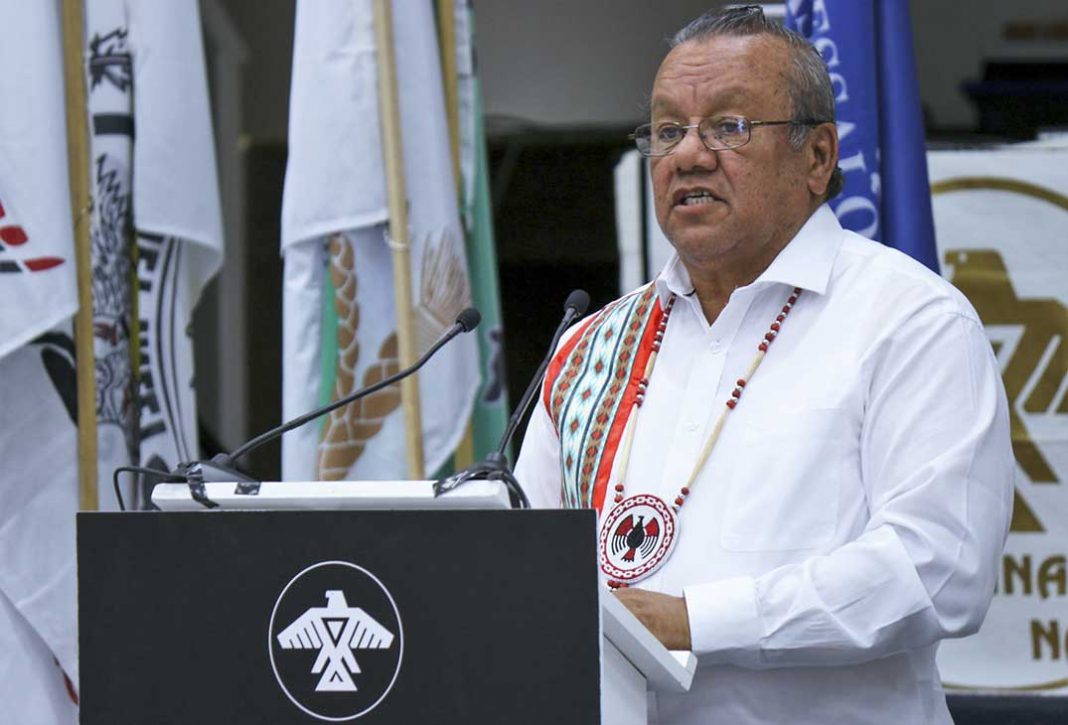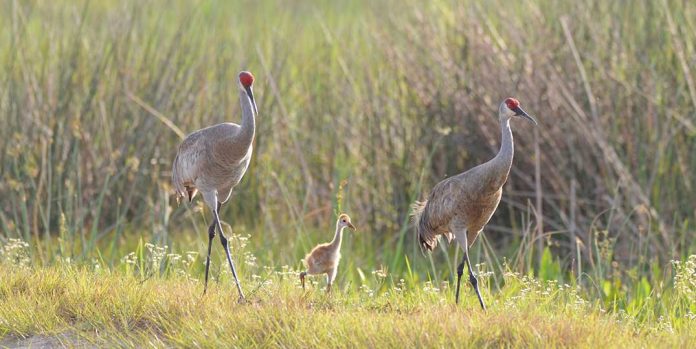ONTARIO – Glen Hare, Anishinabek Nation Grand Council Chief, along with other First Nation leaders, expressed his extreme disappointment with Prime Minister Justin Trudeau and the federal government decision to appeal a Canadian Human Rights Tribunal’s (CHRT) decision to compensate children and their families who have been discriminated against. The Tribunal’s decision, issued in early September, awarded billions of dollars in compensation to the children and families denied equal child welfare services and or denied services that should have been provided pursuant to Jordan’s Principle.
“It’s a huge setback for us,” stated Grand Council Chief Hare in an interview with the Recorder Monday. “We all know what is happening at the federal level with an election coming, but they pulled the trigger quick on this. It always happens with First Nations when court decisions are handed down in First Nations favour.”
“I heard one of the politicians said that this appeal will take years and years. If it takes years to go through the appeal, it will end up costing more than what the court ruling said the government should be paying in compensation,” stated Grand Council Chief Hare. “The decision was made by the courts and the government should honour this decision.”
“It is very disappointing,” he said. “This should not be an election issue, it should be a done deal and based on the court decision. I heard the Grand Chief of Manitoba Arlen Dumas say that he doesn’t want to hear the prime minister say the word reconciliation any more.”
Ontario Regional Chief RoseAnne Archibald said she shares the Chiefs of Ontario’s extreme frustration in the Government of Canada’s decision to judicially review the CHRT decision to compensate children and their families who have been discriminated against.
“Canada says that it accepts there was discrimination against First Nations children and accepts that there should be compensation,” reads an Chiefs of Ontario release. “But yet it also says this is not the appropriate forum to get that compensation. Canada is saying we need to negotiate. We have been trying to negotiate about compensation for these children since 2016 and we never get responses. It is a frustrating situation and meanwhile families are still waiting for justice,” said Grand Chief Joel Abram, social services portfolio holder for Chiefs of Ontario.
Chiefs of Ontario is an interested party in the proceedings and is currently reviewing the court findings. It will continue to appear in court to support the First Nations Child and Family Caring Society and the Assembly of First Nations in this matter.
“This is beyond unacceptable. The government of Canada is once again preparing to fight First Nations children in court,” National Chief of the Assembly of First Nations Perry Bellegarde said in a statement last Friday. “The government could have addressed the broken system and the funding inequalities before, but they didn’t. To appeal this CHRT ruling, which was meant to provide a measure of justice for First Nations children in care, is hurtful and unjust.”
On Friday, Ottawa asked the federal court to review the CHRT’s September ruling, which found the federal government “willfully and recklessly” discriminated against Indigenous children living on-reserve by not properly funding child and family services.
Prime Minister Justin Trudeau was quoted by national media as saying he agrees with many of the tribunal’s findings, including that victims should be compensated, but that more time is needed for consultation than the tribunal’s December 10 deadline allows. The Canadian Press quoted him as saying “we need to have conversations with communities, with leaders to make sure we’re getting that compensation right. Government can’t be having those discussions because we’re in a writ period. Therefore we need time to be able to do that and get it right, because Canadians expect us to get it right and Indigenous Peoples expect us to get it right.”
The court ruling awarded up to $40,000 for each child unnecessarily taken away from his or her family since January 1, 2006, and another $40,000 for each of their parents or grandparents. It ruled similar amounts should go to children abused in foster care and children on and off reserve who were taken into care because they couldn’t access services there, including mental health supports, suicide prevention and basic medical devices.
The Assembly of First Nations estimated the number of children involved at around 54,000, bringing the minimum compensation bill to $2.1 billion. The final amount could be as much as an estimated $8 billion.





